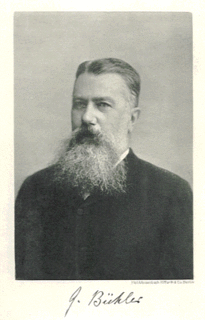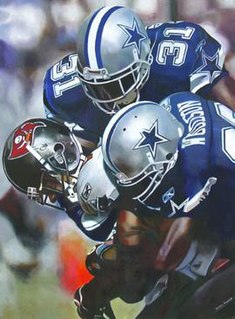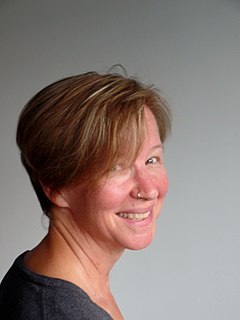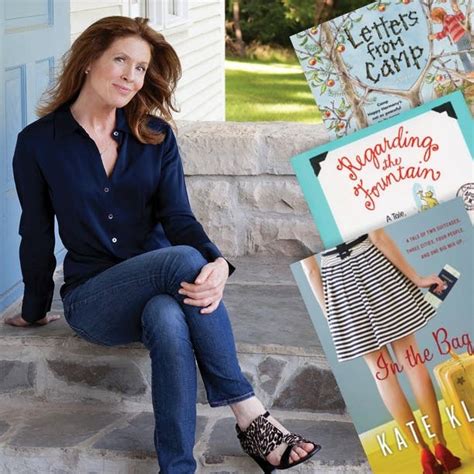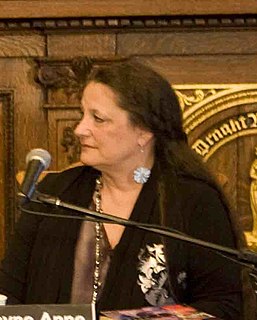A Quote by Kate Zambreno
I try to tell student writers to read as much as possible, not only literature but philosophy, theory, and to form obsessions. There's a big taboo in fiction creative writing workshops against using the self at all, and I think I try to encourage students to write the self, but to connect the self to something larger, which is to be this thinking, seeing, searching, eternally curious person, and that writing can come out of investigating and trying to understand confusion, and doubts, and obsessions.
Quote Topics
Against
Big
Come
Confusion
Connect
Creative
Creative Writing
Curious
Curious Person
Doubts
Encourage
Encourage Students
Eternally
Fiction
Form
Investigating
Larger
Literature
Much
Obsessions
Only
Out
Person
Philosophy
Possible
Read
Searching
Seeing
Self
Something
Student
Students
Taboo
Tell
Theory
Think
Thinking
Try
Trying
Understand
Using
Which
Workshops
Write
Writers
Writing
Writing Workshop
Related Quotes
Writing, for me, when I'm writing in the first-person, is like a form of acting. So as I'm writing, the character or self I'm writing about and my whole self - when I began the book - become entwined. It's soon hard to tell them apart. The voice I'm trying to explore directs my own perceptions and thoughts.
The process of writing can be a powerful tool for self-discovery. Writing demands self-knowledge; it forces the writer to become a student of human nature, to pay attention to his experience, to understand the nature of experience itself. By delving into raw experience and distilling it into a work of art, the writer is engaging in the heart and soul of philosophy - making sense out of life.
When I taught at the University of Houston in the Creative Writing program we required the poets to take workshops in fiction writing and we required the fiction writers to take workshops in poetry. And the reason for that is because the fiction writers seemed to need to learn how to pay greater attention to language itself, to the way that language works.
I don't want to write poems that are just really clear about how I'm aware of all the traps involved in writing poetry; I don't want to write fiction that's about the irresponsibility of writing fiction and I've thrown out a lot of writing that I think was ultimately tainted by that kind of self-awareness.
Some form of gnosis or immediacy is attached to all thinking as its root-form or primitive origination; every act of thinking has this passive derivation, this coming-into-being of thinking not out of nothing (as it likes to imagine) but out of some unthinkable something. But the most self-abstractivist or self-reductivist kind of thinking cannot tolerate even the notion (much less the traumatic experience or confrontation) of an incurable pathos, a weakness or blind-spot, within consciousness. The very idea is an insult to the autonomy or self-determinability of ego/will/reason.
For better or worse, I seem to gravitate toward writing about something or someone else, then have my own self shove its way into that story. It seems insanely narcissistic. But I also think there's a particular effect that comes from using my autobiography in service to another story, as opposed to being the subject. I'm much more comfortable working in that mode. And I do think I have a persona or mood that I keep coming back to: self-conscious, self-critical, unsure. I write a lot about bodies, particularly male ones, usually as a point of emphasis for my insecurities about my own.
I spend quite a bit of time thinking about my students. I look at them, at their work, I listen to what they tell me, and try to figure out who they might become in the best of all possible worlds. This is not easy. Students try to give you clues; sometimes they look at you as if imploring you to understand something about them that they don't yet have the means to articulate. How can one succeed at this? And how can one do it 20 times over for all the students in a class? It's impossible, of course. I know this, but I try anyway. It's tiring.
I never consciously place symbolism in my writing. That would be a self-conscious exercise and self-consciousness is defeating to any creative act. Better to get the subconscious to do the work for you, and get out of the way. The best symbolism is always unsuspected and natural. During a lifetime, one saves up information which collects itself around centers in the mind; these automatically become symbols on a subliminal level and need only be summoned in the heat of writing.


